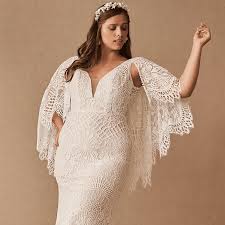In an era of increasing environmental awareness, the fashion industry is undergoing a significant transformation towards sustainability. As consumers, we have the power to make eco-friendly choices that contribute to a greener future. Sustainable fashion embraces ethical and environmentally conscious practices, and one area where these practices are gaining traction is in the production of eco-friendly dresses. In this article, we will explore the importance of sustainable fashion and highlight eco-friendly dress options that allow us to express our style while minimizing our environmental impact.
1. Organic Cotton Dresses:
Organic cotton dresses are a popular choice in sustainable fashion. Unlike conventional cotton, organic cotton is grown without the use of harmful pesticides and synthetic fertilizers. This reduces the environmental impact of cotton production, including water pollution and soil degradation. Organic cotton dresses are soft, breathable, and gentle on the skin, making them a comfortable and eco-friendly choice.
2. Recycled Fabric Dresses:
Recycled fabric dresses are a creative solution to reduce waste in the fashion industry. These dresses are made from recycled materials such as recycled polyester, nylon, or even upcycled fabrics from pre-existing garments. By repurposing materials that would otherwise end up in landfills, recycled fabric dresses contribute to a circular economy and reduce the demand for new resources. They offer style and sustainability in one package.
3. Linen Dresses:
Linen dresses are a sustainable choice due to the natural properties of the linen fabric. Linen is derived from the flax plant, which requires minimal water and pesticides to grow. It is a highly durable and biodegradable material. Linen dresses are known for their breathability, making them perfect for warm weather. They offer a classic and timeless aesthetic while minimizing the environmental impact.
4. Tencel Dresses:
Tencel, also known as lyocell, is a sustainable fabric made from wood pulp sourced from responsibly managed forests. The production process of Tencel involves using a closed-loop system that recycles solvents, resulting in minimal waste. Tencel dresses are known for their softness, breathability, and drape. They offer a sustainable alternative to traditional fabrics like silk or rayon, without compromising on style and comfort.
5. Vintage and Secondhand Dresses:
One of the most sustainable choices is to embrace vintage and secondhand dresses. By giving pre-loved garments a new life, we reduce the demand for new production and save valuable resources. Vintage dresses offer unique styles and a sense of nostalgia, while secondhand dresses allow us to find contemporary designs at a fraction of the cost and environmental impact. Embrace the charm of vintage and secondhand dresses to make a sustainable fashion statement.
6. Ethical and Transparent Production:
In addition to choosing eco-friendly materials, it is crucial to consider the production practices behind the dresses we wear. Opt for brands that prioritize ethical production, fair wages, safe working conditions, and transparent supply chains. By supporting companies that uphold sustainable values, we can contribute to a fashion industry that respects both people and the planet.
Sustainable fashion is not just a trend; it is a necessary step towards a greener and more ethical future. By choosing eco-friendly dress options such as organic cotton, recycled fabrics, linen, Tencel, vintage, and secondhand dresses, we can reduce our environmental impact while expressing our style. Embracing sustainable fashion means being mindful of the materials, production processes, and ethical standards behind the clothes we wear. Let’s make eco-friendly choices and support brands that are committed to creating a more sustainable and responsible fashion industry. Together, we can make a positive impact and pave the way for a greener future through our fashion choices.







Leave a Reply